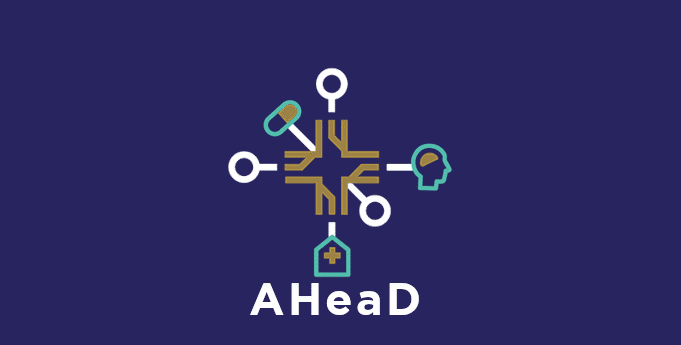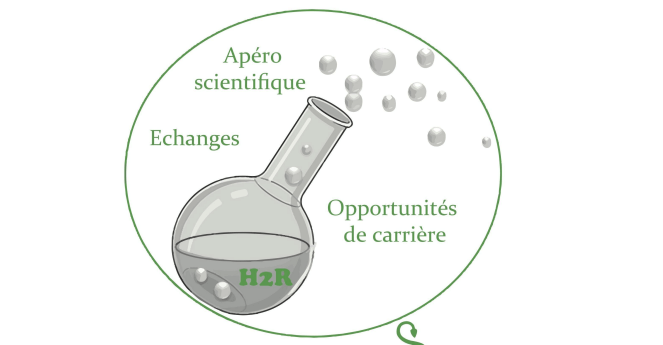
AHeaD
Assessing Health in a Digitalizing Real-World Setting Pharmacoepi & beyond


Details
Université de Bordeaux – ISPED case 11
146 rue Léo-Saignat
33076 BORDEAUX cedex
Objectives
We are interested in better understanding healthcare real-world setting and better assessing medicines in this observational environment.
In particular, we aim to investigate trajectories of care and their determinants, with a specific interest into emergency care use from one side, and trajectories of care for patients with chronic diseases relating to cardiovascular health or mental health from the other.
Research areas
In the past five years, we belonged to three different teams (“Pharmacoepidemiology – Pharmacoepi”; “Injuries – IETO”; “Informatics in Health – ERIAS”). The collaborations we developed ultimately concentrated most of our teams research efforts, typically around the secondary use of electronic databases for the study of health and medicines in a real-world setting,
Anticipating the research challenges that will emerge from the multiplication, diversification, and complexification of digital health data, we decided to join forces into the AHeaD team project.
This will combine our originating teams expertise in electronic health records databases (HERs), hospital datawarehouses, ontologies, data visualization, knowledge representation, and machine learning and natural language processing for health research, thus constituting a tremendous research opportunity.
Indeed, if the questions and needs for health assessment in real-world settings will remain, how to answer these questions will likely change dramatically. In the coming years, the use of electronic health databases, that developed tremendously over the past 30 years, will need to be complemented using information from other sources that will help strengthen and substantiate the real-world evidence provided. Building bridges between applied health research, already widely using EHRs, and informatics consequently appears as a requirement when envisioning the future development of health-assessment in real-world settings.
EHDS project and regulatory information
Projet EHDS et informations réglementaires
You will find all the regulatory information (in French) relating to the EHDS project on the link below or in the publication at the bottom of the page /
Vous trouverez toutes les informations réglementaires (en français) relatives au projet EHDS sur le lien ci-dessous ou sur la publication en bas de page
https://www.bordeaux-population-health.center/projet-ehds-notice-information-participants/
2023 Key Publications
Allouchery M, Tomowiak C, Singier A, Puyade M, Dari L, Pambrun E, Pariente A, Bezin J, Perault-Pochat M-C, Salvo F. Bleeding risk with concurrent use of anticoagulants and ibrutinib: A population-based nested case-control study. Br J Haematol. 2023;203(2):311-8. https://doi.org/10.1111/bjh.18995
Bezin J, Gouverneur A, Penichon M, Mathieu C, Garrel R, Hillaire-Buys D, Pariente A, Faillie J-L. GLP-1 Receptor Agonists and the Risk of Thyroid Cancer. Diabetes Care. 2023;46(2):384-90. https://doi.org/10.2337/dc22-1148
Boudin M, Diallo G, Drance M, Mougin F. The OREGANO knowledge graph for computational drug repurposing. Sci Data. 2023;10(1):871. https://doi.org/10.1038/s41597-023-02757-0
Chenais G, Gil-Jardiné C, Touchais H, Avalos Fernandez M, Contrand B, Tellier E, Combes X, Bourdois L, Revel P, Lagarde E. Deep Learning Transformer Models for Building a Comprehensive and Real-time Trauma Observatory: Development and Validation Study. JMIR AI. 2023;2:e40843. https://doi.org/10.2196/40843
Chenais G, Lagarde E, Gil-Jardine C. Artificial Intelligence in Emergency Medicine: Viewpoint of Current Applications and Foreseeable Opportunities and Challenges. J Med Internet Res. 2023;25:e40031. https://doi.org/10.2196/40031
Gil-Jardine C, Payen J-F, Bernard R, Bobbia X, Bouzat P, Catoire P, Chauvin A, Claessens Y-E, Douay B, Dubucs X, Galanaud D, Gauss T, Gauvrit J-Y, Geeraerts T, Glize B, Goddet S, Godier A, Le Borgne P, Rousseau G, Sapin V, Velly L, Viglino D, Vigue B, Cuvillon P, Frasca D, Claret P-G. Management of patients suffering from mild traumatic brain injury 2023. Anaesth Crit Care Pain Med. 2023;42(4):101260. https://doi.org/10.1016/j.accpm.2023.101260
Letinier L, Bezin J, Jarne A, Pariente A. Drug-Drug Interactions and the Risk of Emergency Hospitalizations: A Nationwide Population-Based Study. Drug Saf. 2023;46(5):449-56. https://doi.org/10.1007/s40264-023-01283-7
Moal B, Orieux A, Ferte T, Neuraz A, Brat GA, Avillach P, Bonzel C-L, Cai T, Cho K, Cossin S, Griffier R, Hanauer DA, Haverkamp C, Ho Y-L, Hong C, Hutch MR, Klann JG, Le TT, Loh NHW, Luo Y, Makoudjou A, Morris M, Mowery DL, Olson KL, Patel LP, Samayamuthu MJ, Sanz Vidorreta FJ, Schriver ER, Schubert P, Verdy G, Visweswaran S, Wang X, Weber GM, Xia Z, Yuan W, Zhang HG, Zoller D, Kohane IS, (4CE), Boyer A, Jouhet V. Acute respiratory distress syndrome after SARS-CoV-2 infection on young adult population: International observational federated study based on electronic health records through the 4CE consortium. PLoS One. 2023;18(1):e0266985. https://doi.org/10.1371/journal.pone.0266985
Perino J, Demourgues M, Ramaroson H, Bezin J, Micallef J, Miremont-Salame G, Frauger E, Gilleron V, Ong N, Daveluy A. Increase in hospitalisation-associated methadone intoxication in France following first COVID-19 lockdown. Public Health. 2023;223:1-6. https://doi.org/10.1016/j.puhe.2023.07.004
Tournier M, Benard-Laribiere A, Jollant F, Hucteau E, Diop P-Y, Jarne-Munoz A, Pariente A, Oger E, Bezin J. Risk of suicide attempt and suicide associated with benzodiazepine: A nationwide case crossover study. Acta Psychiatr Scand. 2023;148(3):233-41. https://doi.org/10.1111/acps.13582
Last News


PROJET EHDS
Notice d'information à destination des participants
Focus

Premier Happy Hour de la recherche en Pharmacie
NewsMembers
Al JobooriSamantha
AlloucheryMarion
AmourouxFrancoise
AUGERMuriel
AwukluKokou-Yvon
AwukluYvon
DoctorantAzziRabia
Chercheur postdoctoralBaumevieilleMarie
MCU-HDRBénard-LaribièreAnne
PharmD - MSc, Drugs-SafeRBezinJulien
Maitre de Conférence des Universités - Praticien HospitalierBouchetStephane
BoudinMarina
ATER, PhD studentBouyerBenjamin
Researcher - Coordinator of the orthopedic pharmacoepidemiology axisCatoirePierre
ChenaisGabrielle
PhD graduate studentCombesXavier
ContrandBenjamin
Statisticien / Data ManagerCossinSebastien
Assistant Hospitalier UniversitaireCOSTEMarie-Odile
AssistanteDaoud PineauFrederic
DaveluyAmélie
de Germaysibylle
DegondeEmmanuel
DialloGayo
HDR- Professeur en Informatique - Directeur adjoint AHeaDDiopPapa Yatma
DranceMartin
dugaAlemayehu
DumartinCatherine
MCU-PH, PharmD PhDEvrardGregoire
GalinskiMichel
GarciaRaphaël
Ingénieur d'études BiostatisticienGigouVéronique
GoncalvesRuben
GriffierRomain
Médecin de Santé Publique, spécialisé en Informatique MédicaleGriotMarine
GuyonJoris
HucteauEmilie
Ingénieure d'études - StatisticienneJarne MunozAna
Ingénieur de rechercheJouhetVianney
LagardeEmmanuel
Directeur équipe IETOLerouge BailhacheMarion
LetinierLouis
MATHIEUClément
Postdoctoral researcherMattaRoula
Mbwe MpohMaurice
MiremontGhada
MolimardMathieu
PU PH Chef du Service de PharmacologieMOUGINFleur
Pr in Computer ScienceNaprousAlexandre
NoizePernelle
PharmD, PhDOuedraogoIsmaila
DoctorantPambrunElodie
StatisticienneParienteAntoine
Directeur - Equipe AHeaD, Inserm U1219 BPHPellayHermine
Post Doctorante en épidémiologie / oncogériatriePerinoJustine
PerrierJulia
Doctorante en pharmaco-épidémiologiePradeauCatherine
QuilesC
RevelPhilippe
RoguesAnne-Marie
Professor MD, PhD, HDRRussonDylan
SaezTheo
SalmiRachid
MD, PhDSalvoFrancesco
Senior Researcher - Hospitali PractitionerSILVA Maria Laura
Maître de ConférencesSingierAllison
PhD StudentSyllaBry
DoctorantTellierÉric
MD, PhDThiao-LayelBruno
Doctorant en informatique et santéThiessardFrantz
Tortes St JammesJuiale
TouchaisHélène
TournierM




